By Bashkim Trenova
Part thirty-four
Memorie.al publishes the memoirs of the well-known journalist, publicist, translator, researcher, writer, playwright and diplomat, Bashkim Trenova, who after graduating from the Faculty of History and Philology of the State University of Tirana, in 1966 was appointed a journalist at Radio- Tirana in its Foreign Directorate, where he worked until 1975, when he was appointed journalist and head of the foreign editorial office of the newspaper ‘Zeri i Popullit’, a body of the Central Committee of the ALP. In the years 1984-1990, he served as chairman of the Publishing Branch in the General Directorate of State Archives and after the first free elections in Albania, in March 1991, he was appointed to the newspaper ‘Rilindja Demokratike’, initially as deputy / editor-in-chief and then its editor-in-chief, until 1994, when he was appointed to the Ministry of Foreign Affairs with the position of Press Director and spokesperson of that ministry. In 1997, Trenova was appointed Ambassador of Albania to the Kingdom of Belgium and to the Grand Duchy of Luxembourg. Unknown memories of Mr. Trenova, starting from the war period, his childhood, college years, professional career as a journalist and researcher at Radio Tirana, the newspaper ‘Zeri i Popullit’ and the Central State Archive, where he served until the fall of the communist regime of Enver Hoxha, a period of time when he in different circumstances met many of his colleagues, suckers of some of the ‘reactionary families’, etc., whom he described with a rare skill in a book of memoirs published in 2012, entitled ‘Enemies of the people’ and now brings them to the readers of Memorie.al
Continued from the previous issue
“Enemies of the people”
Servants who defended director Murzaku, in the meeting that lasted 12 hours!
The first, after Thomas, was General Minella. “Comrade Thoma,” he said, “is a good communist. Union is a worker, a good friend, but he has fallen into small things, he sees the mistakes of others magnified. “Comrade Bashkim is very likely to take a different position from the one he has.” Adrian Banushi spoke after him. “A lot of things are trending,” he said. ‘What is said in the letter does not stand. Not to be reprimanded with denigrating intentions and low intentions…! There are only difficulties of growth…! These friends are not right. “These are extremist thoughts.” Then the tones come getting heavier. Gjergj Çaprazi, issued the statement: “Let’s take a stand. These friends all throw mud. One should take a stand up to remarks about these friends, remarks about I said and theme. “The union is a victim, I reserve for that, not for others.”
Gjergj Çaprazi had known Thoma Murzaku years ago in Burrel where they worked at the time. Thomai, after being appointed director of the General Directorate of State Archives, had made possible the employment of Gjergji in this Directorate, ie his departure from Burrel, his return to the capital. After leaving him for several years as chairman of the Inspection Branch, ie in a position with numerous services throughout Albania, Thomai appoints him as chairman of the Framework Branch. Gjergji was thus released from the numerous services he rendered in different regions of Albania. He could not help but be indebted to Thomas for the honors bestowed upon him.
George, it seems to me, was tasked with giving direction to the subsequent discussions. Thus, Ariana Nikolla, repeated Gjergji’s proposal for remarks. She says of Thomas: “Let the director accept what seems right to him.” Thomas’s secretary, Natasha Koja, also discussed Gjergji’s line. Another communist friend, Nedrete Xhaja, whom I also had a high school friend, said in her discussion: “Comrade Thoma has encouraged me to move forward… I do not like Comrade Bashkim to worry about these problems. We have become ridiculous. … .I have no objections to Comrade Thoma… Leads for beauty. The truth is that after returning from specialization she, in an attempt to restore a medieval codex, barbarically mutilated him, cutting off his lids and sheets. This was never mentioned to her by Thomai be grateful to him.
From the communists of the basic organization, the last word was said by Reshat Alia. According to him, those who had dared to criticize Thoma Murzaku, were “cowards” and had shown “their true face”. Reshati closed his speech by saying: “Things are going well in our institution.”Dear Thomai must be respected.”
My question to the director, why did he remove from the Archive the three best specialists?!
It was clear how this meeting would end. On a break, I ask Mihallaq Pelen, a former employee of the State Archive, one of the best specialists of the institution, that he was crazy? Mihallaqi was the only communist who spoke out against the proposed measure for me and the other three communists from Gjergji. He was the only one who during the discussions, spoke not only about the “merits” of Thoma Murzak, but also about his shortcomings. Mihallaqi spoke to me openly. “This meeting will not end well,” he told me.
In fact it ended very badly. Gëzim Dobrovoda asked only one question. In my discussion, among others, I had said that Thoma Murzaku, for revenge had removed some specialists from the State Archive. Joy asked for their names. I mentioned the names of Partizan Peza, Nezir Batos and Nevila Nika. All three were known as constant and long-term critics of the institution’s director, Thoma Murzaku. All three were complete specialists and archivists, well versed in archives and archival work. Partizan Peza was, I believe, the only one in Albania who had studied abroad for archives. Nezir Bato, was one of two or three people who had been sent to study abroad to learn Ottoman. In the State Archive there was a valuable documentary wealth in this language. Nevila was a former employee of the State Archives, in charge of the Sector, very systematized in her knowledge. The fact is that in a few years she will become the main director of the General Directorate of State Archives. At least here things were concrete.
Thomai was discovered and could not defend himself. That’s how it looked to me. In fact it turned out that for the control team of the Central Committee of the Party; even here Thomai was not responsible. Haxhire Xhani, after getting up and making one last move, as if he wanted to raise his panties that had slipped a little lower than he should, released a question that he did not even want an answer. “What about you as an organization?” She said. How does the director manage the organization? ” Responsible, however, were us communists, organizations and not Thomai. After turning her bottom left and right once more, always aiming to raise her higher, Haxhire Xhani reached out to Thoma Murzaku’s desk and took a piece of paper that, victorious and threatening, she showed us all. . This, she said, is a commendation sheet signed by Nexhmije Hoxha. Mrs. Nexhmie appreciated and thanked Thoma Murzaku, for the valuable help he had given in the establishment of the Museum “Enver Hoxha”, that is, what is popularly known as the “Pyramid” of Enver Hoxha. Everything was very clear. The delegates of the Central Committee thus told the organization that to touch Thoma Murzaku meant to touch the untouchable, the dictator’s own widow!
The decision of the organization, for my sentence, with removal from the Archive!
After these words, I was asked to reflect and make self-criticism. Next, no action would be taken against me, so the Party would be open to me. In fact, if I accepted this, I would appear before the collective as a coward, a man without dignity, without integrity, as an opportunist, talkative and intriguing. I was asked to trade with everything I had had more expensive. They wanted to denigrate me. This way they would feel safe in the future as well. My thoughts and words would be “conditional prisoners”. I refused to do what I was asked to do. In conclusion, Bujar Hoxha, Aleks Kume, Hafsa Krutani and I were punished by the basic organization of the Party, with the measure “remarks on the registration card” of the Party member. The Bureau of the organization then decided to add another measure to our removal from the Central State Archive. The second measure was not even discussed in the basic organization of the Party.
According to the secretary of the organization, Kristaq Teneqexhiu, the bureau was instructed not to discuss this in the organization, but only to make a formal communication. As far as I remember, after three or four days, all the employees gathered in the big hall. It communicated the decision taken by the organization and it’s Bureau against the four communists of the institution. There was a general disapproving reaction in the hall. Some people wanted to ask and discuss. The secretary of the organization, Teneqexhiu, told the employees that they had not gathered to ask questions and discuss, that they were there only to hear the decision of the basic organization of the Party. Haxhire Xhani and Gëzim Dobrovoda had previously said that if there were to be discussions in the collective, the collective would be threatened!
I felt overwhelmed. I felt as much satisfaction from the collective reaction as I did from a complete lie from what I had trusted as an icon, from the Labor Party. This is not because I was being punished, because I could be punished unjustly, and I could accept this knowing that no one is infallible, not even the Party leaders, who identified with the Party itself. In its powerful propaganda, the Labor Party and its leaders declared, “What the people want, the Party does, and what the Party says, the people do.” Now the people were practically silenced, the people were threatened. The party did not listen to what the people wanted and the people did not want to do what the party said. It seems to me that in my opinion two camps were being formed. Someone punished me, fired me, and asked me to serve him as a slave of antiquity, the camp of domination, fear and threat. The other, though he seemed helpless, uncrystallized, sought to protect me, saw me as one of his own.
In the practice of the Albanian Labor Party, the punishment of its most dangerous enemies became the subject of discussion in work centers, schools and neighborhoods. The party has always sought to demonstrate the solidarity of the people with the extreme capital punishments given, for example, to former Politburo member and Minister of Defense Beqir Balluku, former Politburo member and Interior Minister Kadri Hazbiu, former Minister of Interior Deputy Prime Ministers and members of the Politburo, Abdyl Këllezi and Koço Theodhosi, the former number two of the regime, Prime Minister Mehmet Shehu, many army generals, etc., etc. The party thus played the farce of democracy. People, employees participated in this farce intentionally or unintentionally, generally indifferent, sometimes even cheerful. After all in all these etc., similar cases, the dictatorship laundered accounts within its bosom. For the people it was the same if one name of the dome was replaced with another, if someone from the top leadership of the Party and the government was exiled or declared loyal to the dictator, if he was imprisoned, executed or declared a hero. In the wolf kennel, they were all the same.
Bujar, Hafsaja, Aleksi and I were neither enemies of the Party nor enemies of the government. We, in ourselves, did not represent any minimal danger for the Party, we were far, far away from ambitions, intrigues, traps of the party yard, we were four simple communists, four employees in an institution that had no interest for the vast majority of Albanian citizens, an institution whose existence was not even known, even, by this majority. The events in the State Archive, however, could make it talked about in the Albanian public, they could take this institution out of the “archiving”. This, perhaps, did not interest the Party. This may be one of the reasons why it was decided not to discuss in the collective, but only to communicate the punitive measures that were given to Alex, Bujar, Hafsa and me. The leaders of the institutions were her most trusted people. Consequently, hitting them, even with some criticism, especially when the criticism would not be interrupted for years, could not be welcomed. The Party was the sole authority to decide on the appointment or dismissal of a director. She could not delegate this authority because it was part of her power. Good and evil, moral and immoral, friend and foe, ally and adversary, what was to be rewarded and to what extent, as well as what was to be punished and to what extent, were all decided by the Party.
It seems to me that the arbitrary decision to shut up the employees of the State Archives and not to hesitate to openly declare it in a hurry, also showed a concern of those who made this decision. The country recipients knew the reality in the State Archives. They knew that his employees could formally show solidarity with any punishment, even capital that the Party could impose on Red Dome members. They also knew that the punishment given to their four colleagues, simply because they had dared what they themselves dared, simply because they had said what they had been and were willing to say it again, would never pass with a formal solidarity nor with a silence out of fear. The situation in the State Archives was tense, perhaps even somewhat special. The State Archive could possibly also become a model for others. That is why there was no attempt to play the farce of democracy. That is why the regime did not hesitate to show itself as it was, brutal and arrogant.
The article “Ramizi, Nexhmija and Krushqia” that was not published in “RD” in ‘91?!
Approximately two years later, when I left the State Archives I to work for the newspaper “Rilindja Demokratike”, regarding the above, I wrote an article entitled: “Ramizi, Nexhmija and Krushqia”. In those beginnings, the editor-in-chief of “Democratic Renaissance” was Frrok Cupi. He had published in the pages of this newspaper an article entitled: “Why does not the block break”?! The writing was bold for the time and was very well received by the readers. Frroku showed how the members of the communist dome in Albania, who lived in a separate neighborhood known as “Blloku”, were related by kinship or tribal ties. He thus showed something knowledgeable, but that was not said out loud until then, namely that the leadership of the Labor Party was a clan and tribal grouping, which in tight turns defended its interests, the interests of the clan. Frroku asked one day from us, his colleagues, not to leave him alone, but to engage us in similar topics or subjects. That’s why I wrote the article for The Block.
“Ramizi, Nexhmija and Krushqia”, was approved by Frrok as editor-in-chief, was sent to the printing house of “Poligrafik” where it was printed, the necessary corrections were made and it was listed on the page. However, this article was not published. Frroku told me that we would publish it in the next issue of “Democratic Renaissance”, but that article was never published. I do not know the reason why!? All the articles I have written about “Democratic Renaissance” have been published to me without any hindrance. The only exception was “Ramiz, Nexhmija and Krushqia”!
The threat he made to me in the Central Committee, Haxhire Xhani!
After the meeting of the organization, Thoma Murzaku and those close to him began to show even more restrained, even more aggressive. Now they had the open blessing of the Party, they acted as the Party had taught them. Two or three weeks later, Haxhire Xhani called me to a meeting at the Central Committee of the Party. She spoke to me like a brothel patron; she could talk to an ordinary hooligan. According to her, the Central Committee had information that I, dissatisfied with the measure given to me by the Party organization, was meeting people up and down and I was talking as I should not, so I was dealing with slander and I said the theme! There was really nothing in her words, but that did not stop her from giving me a serious warning, or rather a serious threat. She told me that the Party could go further; it could deepen the measure towards me if I would continue on the path I had started. The party, apparently, did not feel comfortable with the measure given to me; it had probably been tolerant of me!
In fact at that time I felt as bad as ever in my life. I could not go to work anymore, but I could not go. I locked myself inside with a key in my office and lay down on the desk because I could neither sit nor stand. In this situation I asked a colleague, Eduard Zaloshnja, to help me. His wife was a heart doctor at the Tirana Civil Hospital. I told Edward to talk to his wife, to ask her if she could put me in the hospital for a few days, enough to give me some strength. Edward was ready, but at the same time advised me not to do this because, according to him, this way I would give “weapons” to my opponents. I accepted his reasoning. To find a “solution” I asked the Directorate of the institution, that the Branch I headed to merge with another. Thus I would be in a lower position, but I would no longer be a member of the Board and this would avoid meetings with Thoma Murzaku. My request was approved. For the first time in a long time, Thoma Murzaku and I were of the same opinion. He then asked General Minella, the chief of administration, to move my office to another building, away from where his office was. Here, too, we both agreed.
On June 23, 1989, about six months later, at a meeting of the basic organization of the Party, I was asked to address “with more self-critical and deeper emphasis the mistakes”, for which I was punished together with three other communist comrades. I did not respond to this request. The organization then decided to give me a deadline, until its next meeting, which would be held on July 10th. To prepare for the July 10 meeting, I asked the organization’s secretary, Kristaq Teneqexhiu, to give me the opportunity to consult the minutes kept at previous meetings of the organization. As I would learn on this occasion, in the Archives of the organization there was no decision or copy of the decision on the punishment given to me, no minutes of the meeting that decided the punishment of the four communists, no trace of who proposed it and how the decision to leave was made from the State Archive. All relevant documentation was missing. To conceal this truth, to conceal why it had happened so, without wasting time, the Bureau immediately organized an extraordinary meeting of the organization. There they made a series of criticisms of me as arrogant, capricious, and disruptive of unity…! Thoma Murzaku asked me to reflect not only on old mistakes, but also on new ones…! He concluded with the words: “The union has done great damage to the state.”
My letter to Piro Kondi, the first secretary of the Tirana Party Committee!
Seeing how events unfolded, on July 3, 1989, I sent a letter to the First Secretary of the Tirana Party Committee, Piro Kondi. After briefly telling him about the meeting of the organization and the pressures on me to withdraw what I called “principled criticism,” I wrote in the letter: “This would be out of my conscience as a communist, out of my character as a citizen.”I will not do this at any cost, as I have acted with full conviction.” I then asked him to “attend a delegate from the District Party Committee” at the next meeting of the organization, where my crucifixion was expected.
I do not know if Piro Kondi has read my letter. I believe that is. At the meeting of the organization on July 10, however, no delegate from the Tirana Party Committee came. This attitude is understandable even if Piro Kondi had read the letter I had sent him. He was, of course, aware of the decisions taken by the organization under pressure from Haxhire Xhani and Gëzim Dobrovoda. He could not send to the State Archive, after a few months, a delegate to ascertain the truth, who had created the problems in this institution. Piro Kondi could not oppose those who had sent Haxhire Xhani and Gëzim Dobrovoda, Nexhmija and Ramiz. He may have slowed down a little that that were in a hurry to settle accounts with me. The fact is that against me at the meeting on July 10, the organization did not repay the measure it had given me, as was the rule, (after six months of receiving a measure, a request was made to repay it), but it did not even take any action punitive cloud as expected.
In the circumstances created I thought it would be useful to make known to the press the dirt accumulated over the years in the General Directorate of State Archives. I wrote an article and left for the editorial office of “Voice of the People”. I thought that if the article was published, the force of opinion would force Thomas’s defenders to abandon it. For me the publication of the article was the last hope. I met Pavlo Gjideden. This was one of the old journalists of “Voice of the People”. He had occasionally published critical articles for executives; he also liked to take risks. Paul agreed to submit my article for publication. He did so, but to no avail. Its publication was not approved by the Editorial Board.
I, however, did not give up my efforts to publish the article. After “Zëri të popullit” I went to the editorial office of the newspaper “Tirana”. That’s what I thought it was called. The newspaper was a body of the Tirana Party Committee. Its editor-in-chief was Nadia Xheblati. In the newsroom I met Zef Lleshi, her journalist, with whom I worked for several years in a row in “Democratic Renaissance”. I talked to him and he was willing to submit the article for publication. The subject seemed irritating. Even “Tirana” did not publish the article. The editor-in-chief had talked to Piro Kond about its publication. Piro Kondi had not agreed. He had instructed Nadian to be careful that “there are some troublemakers” in the State Archives. The terminology was the same as that used by Haxhire Xhani. Memorie.al
The next issue follows




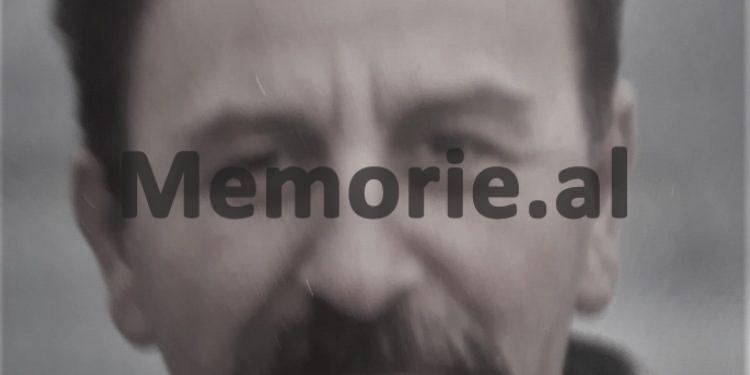
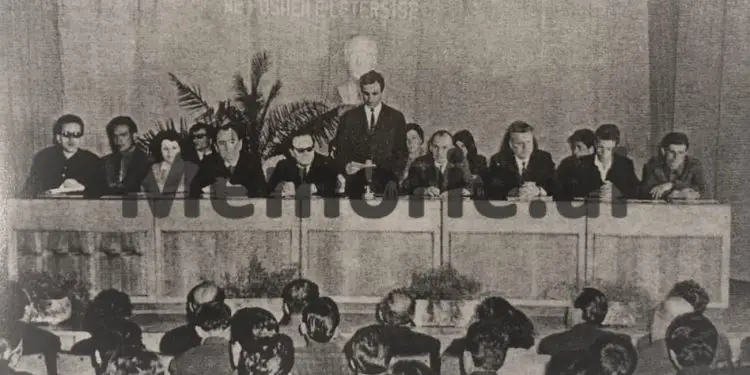
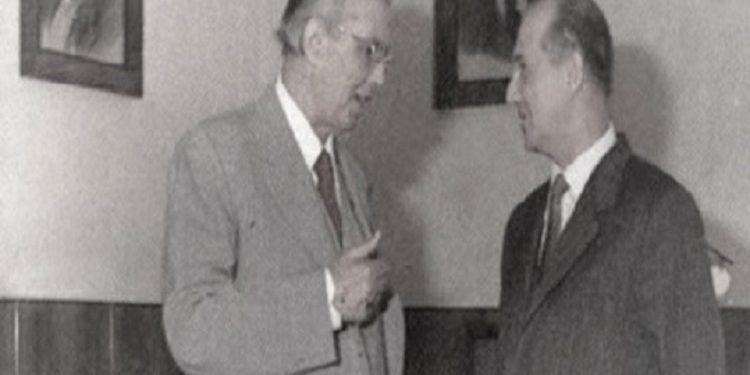
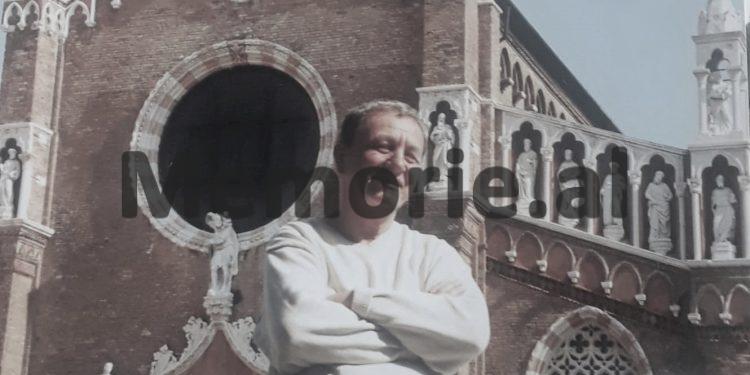
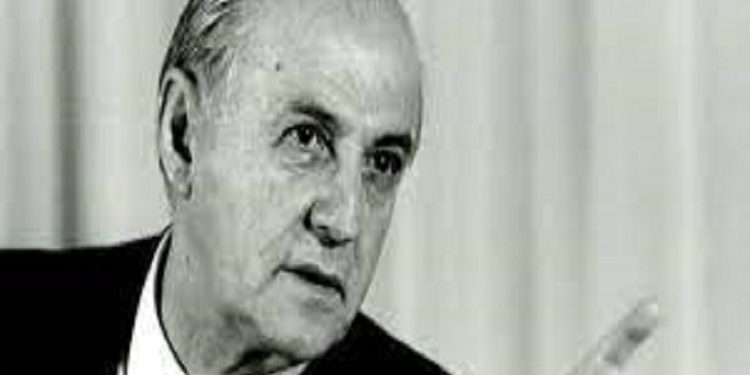
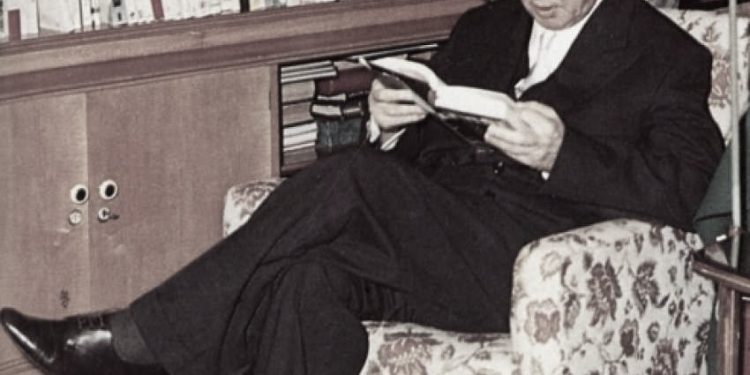
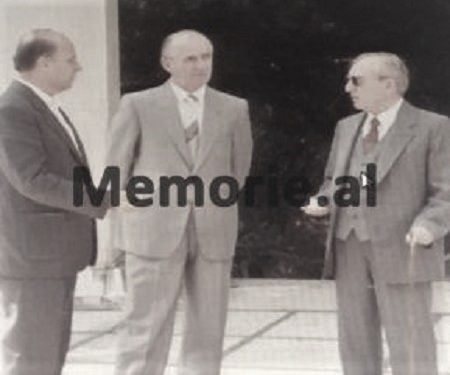
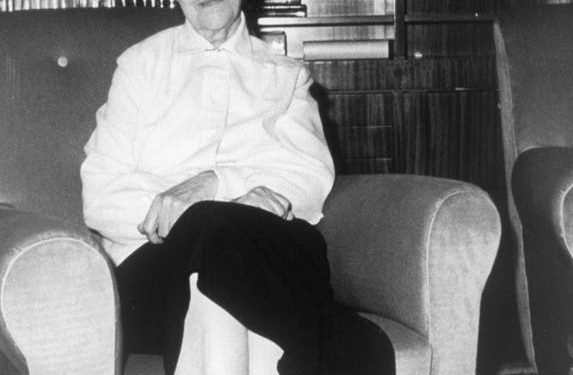
![“The ensemble, led by saxophonist M. Murthi, violinist M. Tare, [with] S. Reka on accordion and piano, [and] saxophonist S. Selmani, were…”/ The unknown history of the “Dajti” orchestra during the communist regime.](https://memorie.al/wp-content/uploads/2026/02/admin-ajax-3-350x250.jpg)
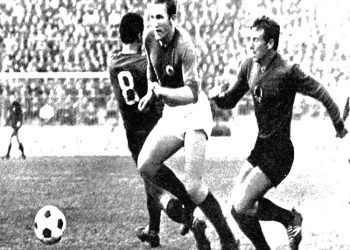
![“In an attempt to rescue one another, 10 workers were poisoned, but besides the brigadier, [another] 6 also died…”/ The secret document of June 11, 1979, is revealed, regarding the deaths of 6 employees at the Metallurgy Plant.](https://memorie.al/wp-content/uploads/2026/02/maxresdefault-350x250.jpg)



